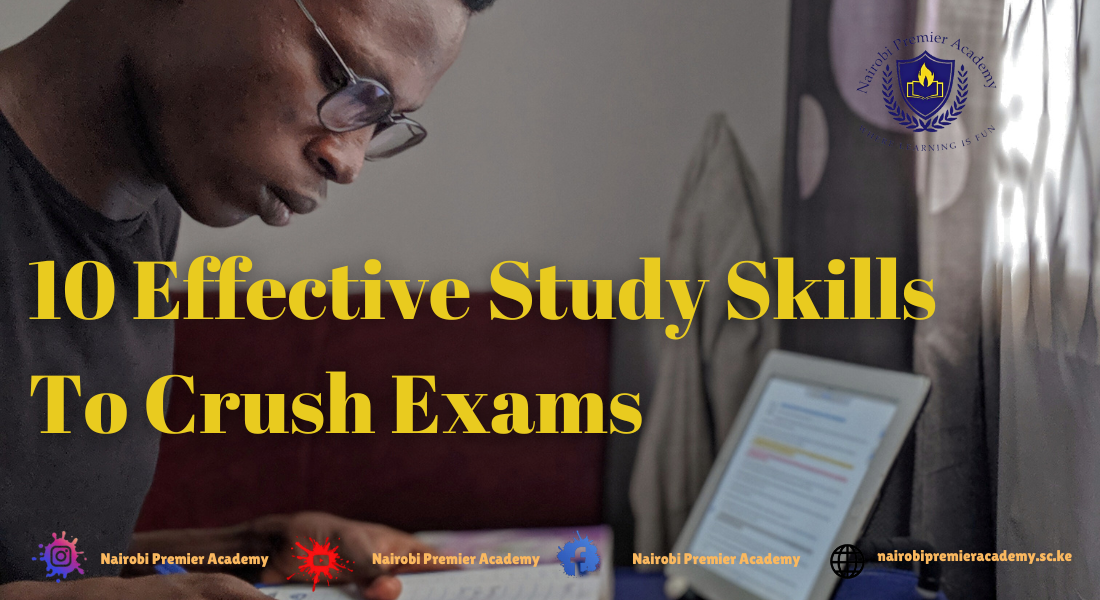Mastering effective study skills is crucial for academic success, enabling students to navigate the vast sea of information, comprehend complex concepts, and excel in exams. In this comprehensive guide for 2023, we will explore proven strategies that empower you to optimize your study habits and achieve excellence in your academic pursuits.
Understanding the Importance of Study Skills
Before delving into specific study techniques, let’s emphasize the significance of refining your study skills. Picture studying for hours without retaining information effectively or feeling overwhelmed by the sheer volume of material. Effective study skills can metamorphose this experience into focused learning, heightened comprehension, and enhanced memory retention.
- Time Management and Planning
Time management stands as a cornerstone of successful study habits. Allocating dedicated study sessions helps avoid last-minute cramming and promotes consistent learning. Craft a study schedule that harmonizes with your daily routine, effectively utilizing time blocks. Prioritize challenging subjects, dedicating more time to areas that require additional understanding.
- Active Reading and Note-Taking
Passive reading can result in a superficial understanding of the material. Active reading, on the other hand, involves engaging with the content by highlighting key points, jotting down summaries, and asking questions. Transform these annotations into concise notes that highlight concepts, examples, and explanations. Organize your notes using color-coding and visual aids for enhanced memory retention.
- Flashcards and Self-Testing
Flashcards prove to be potent tools for memorization and self-assessment. Create flashcards with questions on one side and answers on the other. Regular self-testing reinforces knowledge and helps identify areas that need further review. Digital flashcard apps offer convenience and interactive learning experiences.
- Visual Aids and Mind Mapping
Visual aids, including diagrams, charts, and mind maps, condense complex information into easily digestible formats. Mind mapping visually connects related concepts, aiding in understanding and recall. These visual representations stimulate both sides of the brain, making information easier to comprehend and remember.
- Breaks and Active Recall
Studying for extended periods can lead to burnout and reduced efficiency. Implement the Pomodoro Technique, involving focused study sessions followed by short breaks. During breaks, practice active recall by summarizing what you’ve learned without referring to your notes. This technique reinforces understanding and solidifies memory.
- Group Study and Peer Teaching
Collaborative learning enhances understanding through discussions and peer teaching. Explaining concepts to others reinforces your own knowledge and encourages critical thinking. Group study sessions provide diverse perspectives and foster collective problem-solving.
- Practice Exams and Mock Tests
Simulating exam conditions through practice exams and mock tests familiarizes you with the test format and timing. Analyze your performance and identify weak areas for targeted review. Becoming accustomed to the exam environment diminishes test anxiety, boosting confidence.
A clutter-free and organized study environment promotes focus and reduces distractions. Keep study materials, stationery, and resources within reach. Minimize digital distractions using website blockers or apps that limit social media usage during study sessions.
- Healthy Lifestyle Choices
Physical well-being directly impacts cognitive function. Prioritize sleep, exercise, and balanced nutrition. Regular exercise improves blood flow to the brain, enhancing cognitive abilities. A well-rested mind absorbs information more effectively, leading to better retention and understanding.
- Positive Mindset and Stress Management
Maintain a positive attitude towards learning and acknowledge your accomplishments, no matter how small. Stress and anxiety can hinder effective studying, so practice relaxation techniques such as deep breathing, meditation, or mindfulness. Positive self-talk and affirmations can boost confidence and motivation.
Conclusion
Mastering study skills is an investment in your academic journey and personal growth. Whether you’re preparing for an upcoming exam or striving for continuous improvement, these techniques empower you to take charge of your learning experience. By implementing effective time management, active learning methods, and healthy lifestyle choices, you’ll not only boost your study skills but also elevate your confidence and performance during exams. Embrace these strategies, embark on your journey of academic excellence, and witness the transformation of your educational endeavors.
For more tips and resources on effective study skills, explore these external links:

